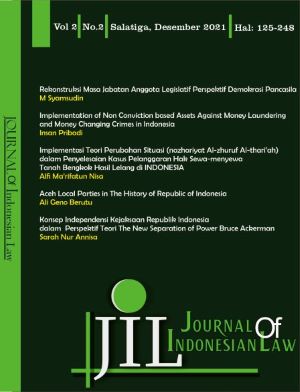RISIKO HUKUM DAN FISKAL DARI PEMBAGIAN INSENTIF DALAM PENEGAKAN HUKUM KEPABEANAN: STUDI KRITIS TERHADAP PASAL 113D UU KEPABEANAN INDONESIA
DOI:
https://doi.org/10.18326/jil.v6i1.4159Keywords:
premi, customs, state financeAbstract
This study examines the legal and fiscal implications of the premium policy in Indonesia's customs law enforcement system under Article 113D of the Customs Law. The provision grants a maximum premium of 50% of fines or auction proceeds from confiscated goods to those who contribute to uncovering customs violations. While aimed at enhancing bureaucratic efficiency, the policy raises concerns such as moral hazard, conflicts of interest, and perverse incentives. These may undermine fiscal accountability, transparency, and the principle of justice within good governance. Using a normative and public policy approach, this study assesses the compatibility of the provision with the principles of the rule of law and sound fiscal governance. It concludes that the incentive scheme risks institutional legitimacy and erodes public trust. Reformulating the premium policy is essential to focus on public service, professional conduct, and national interest.








